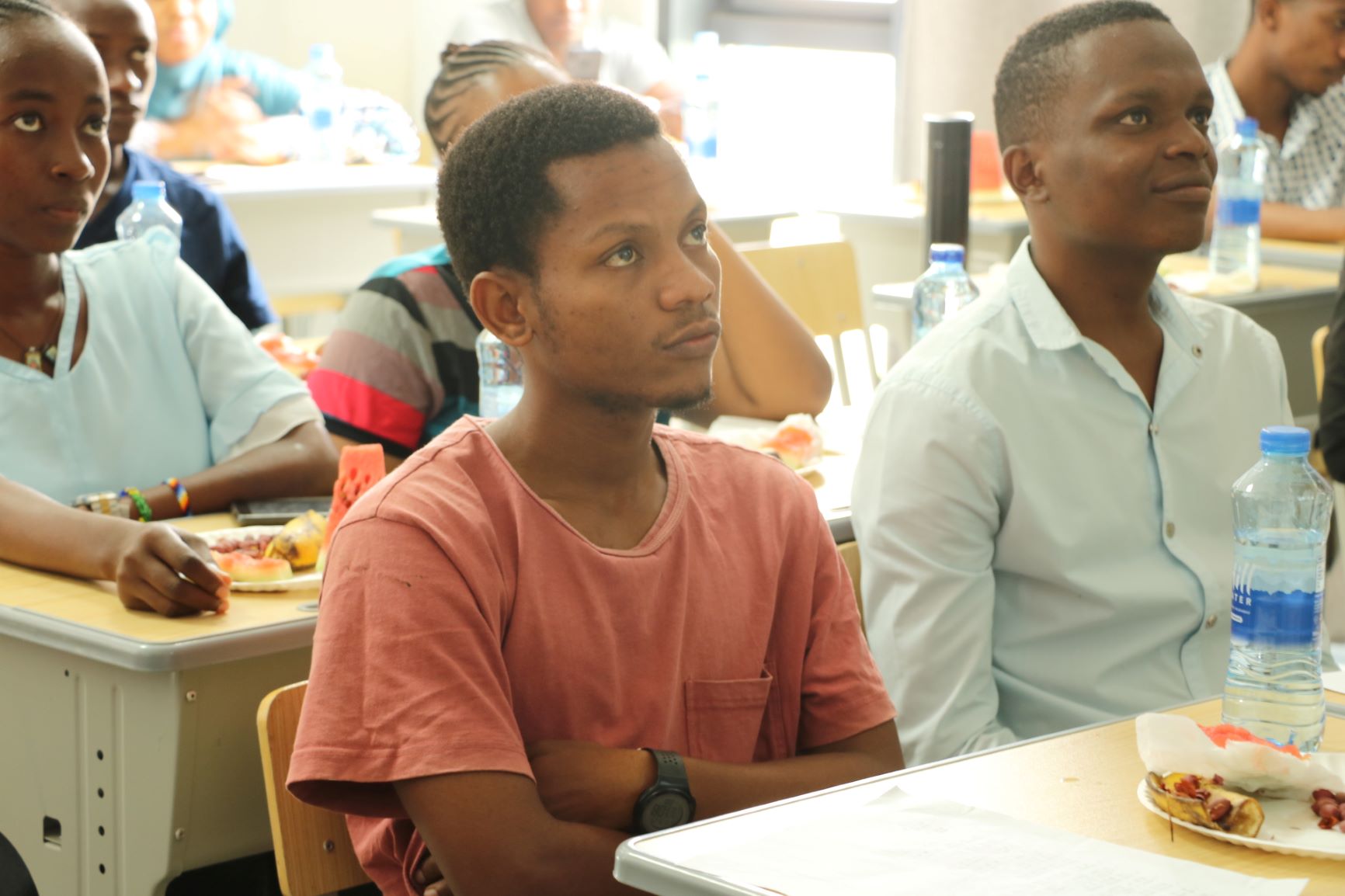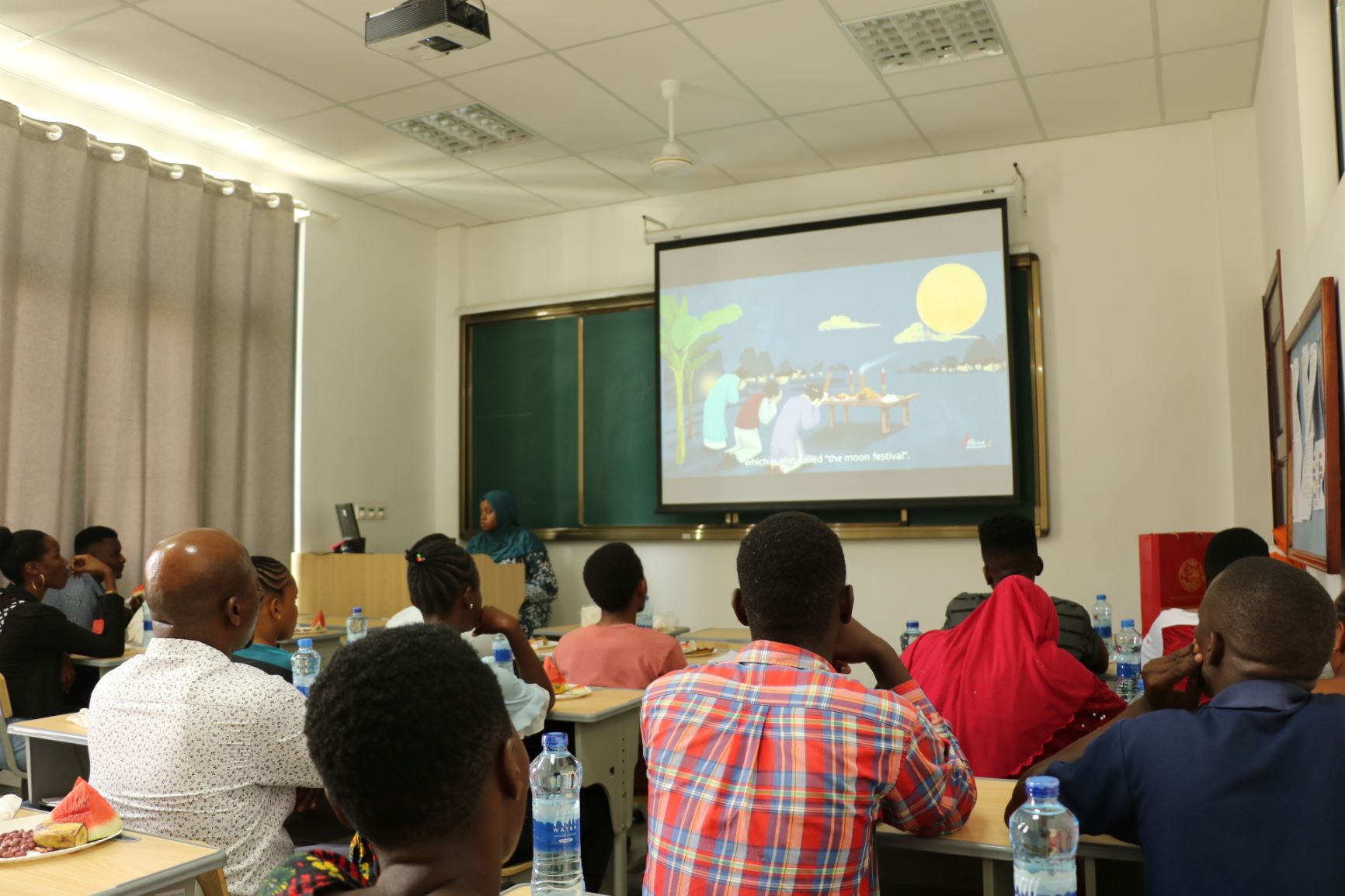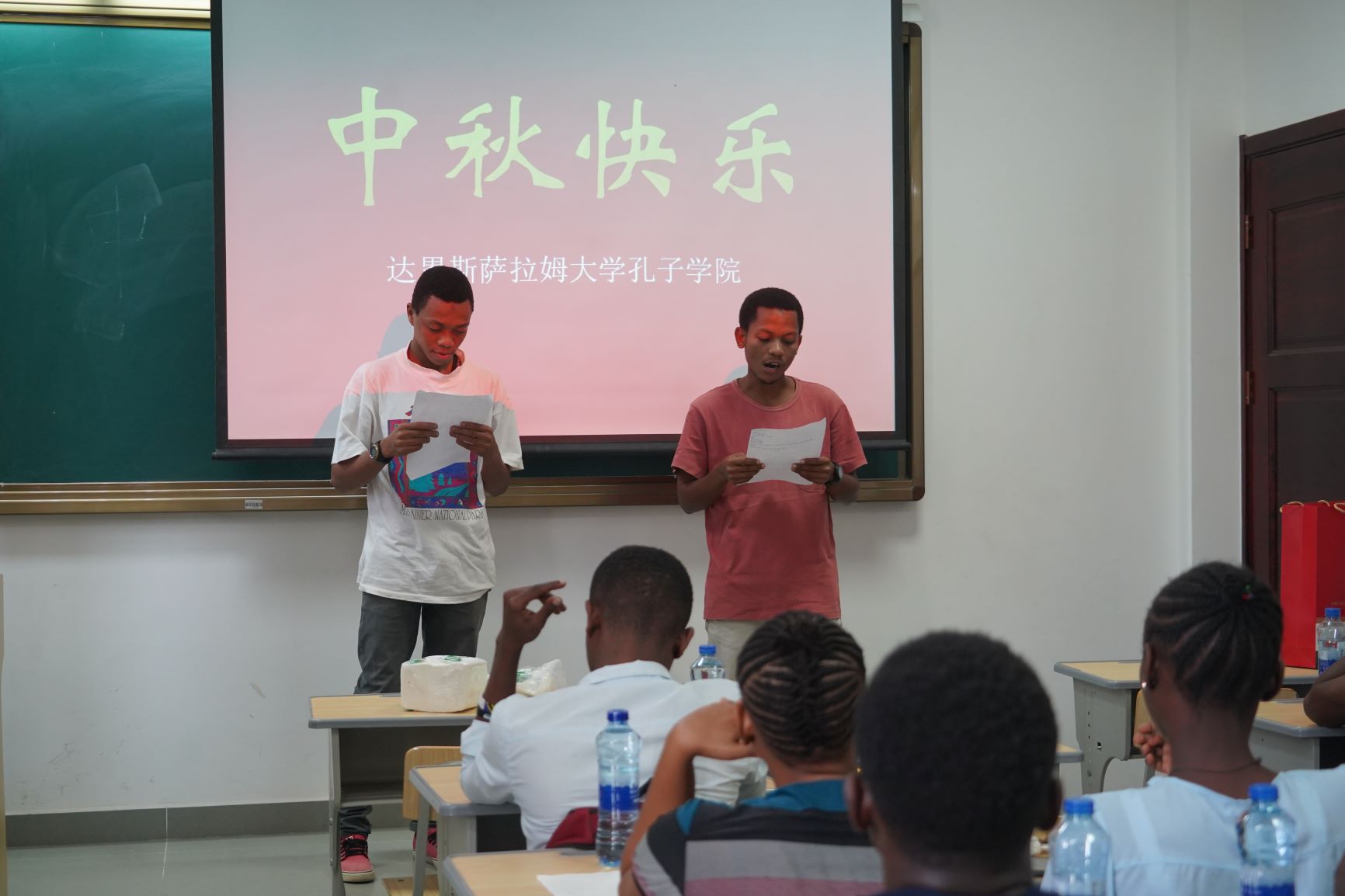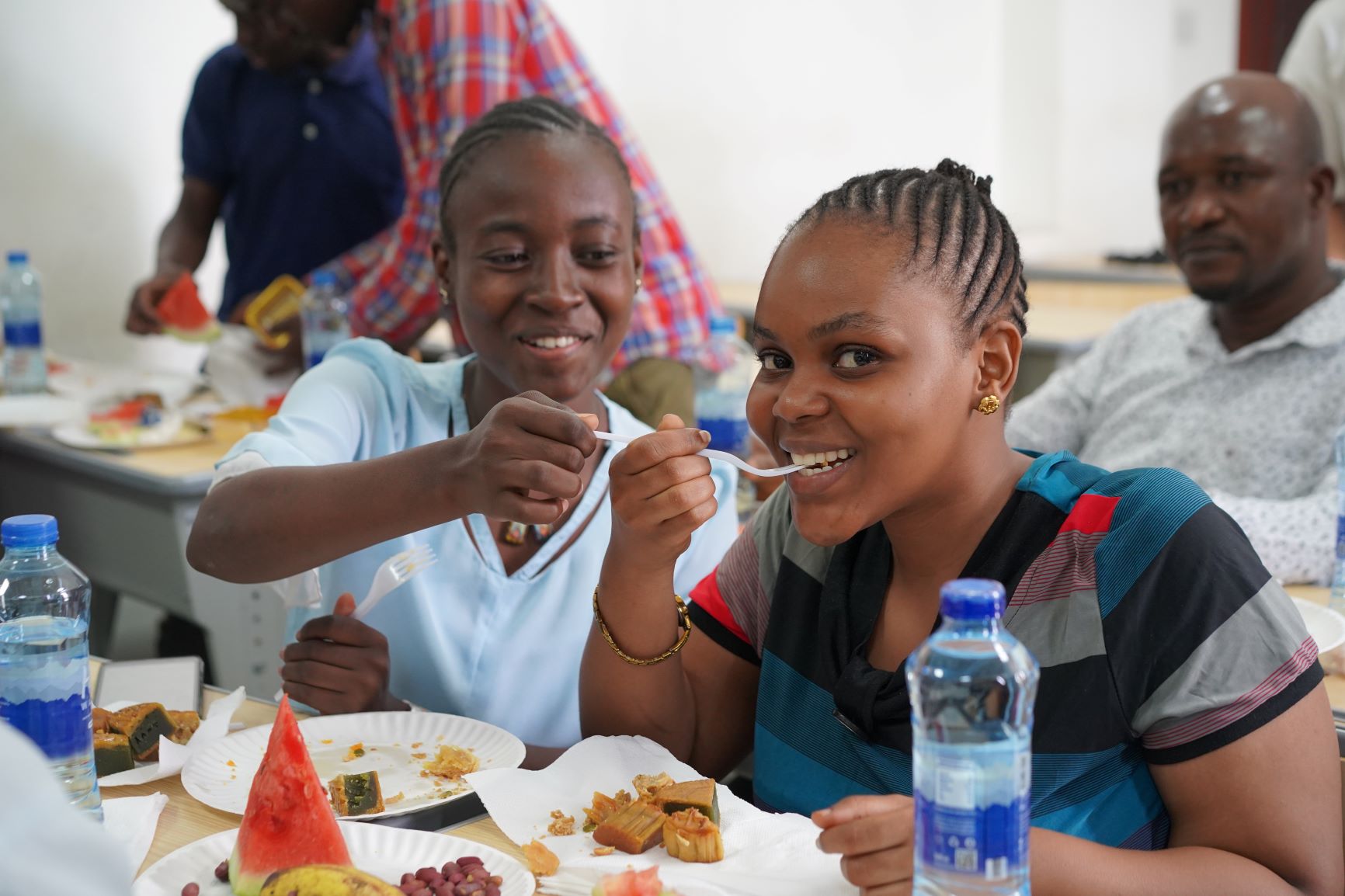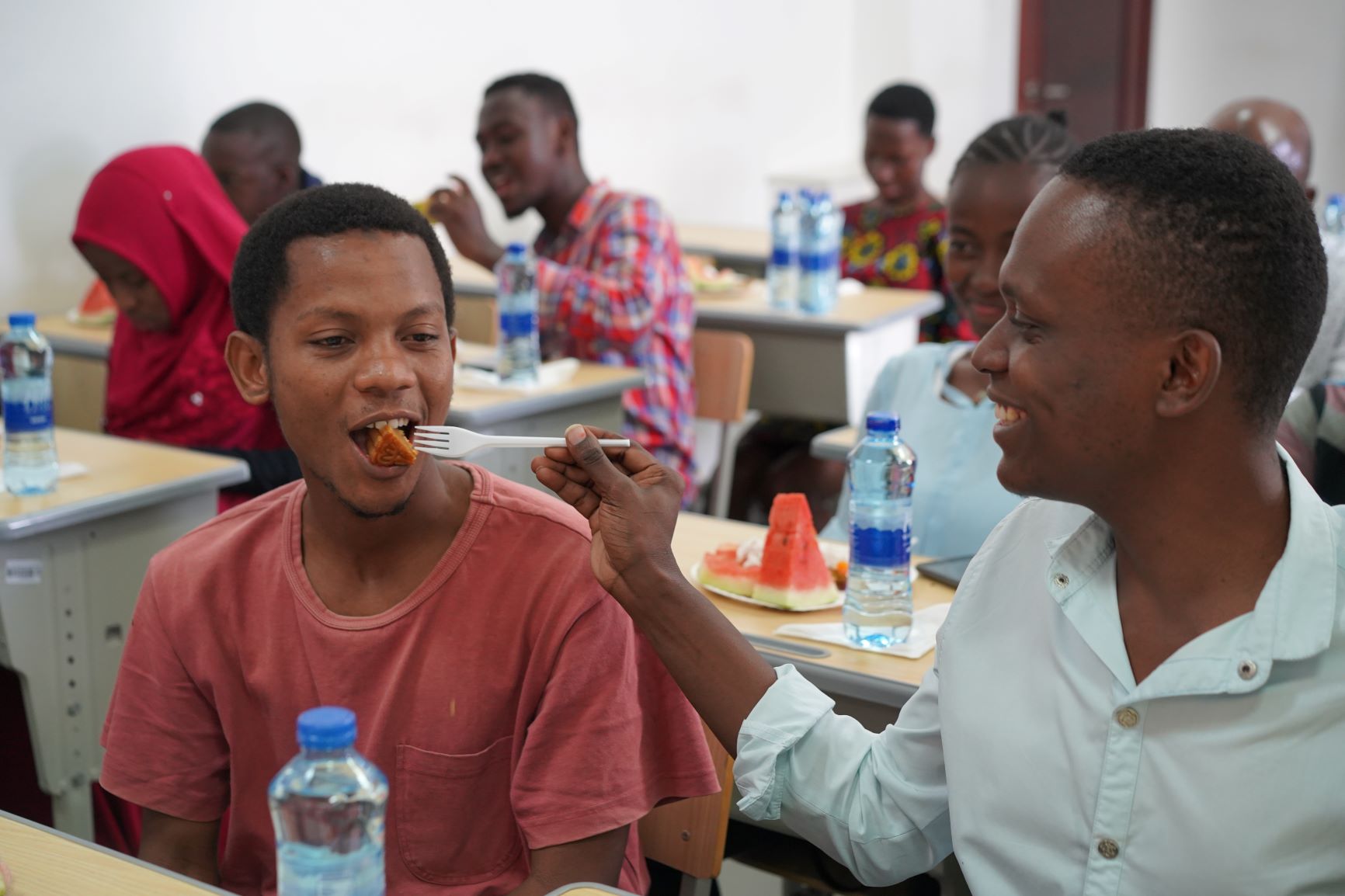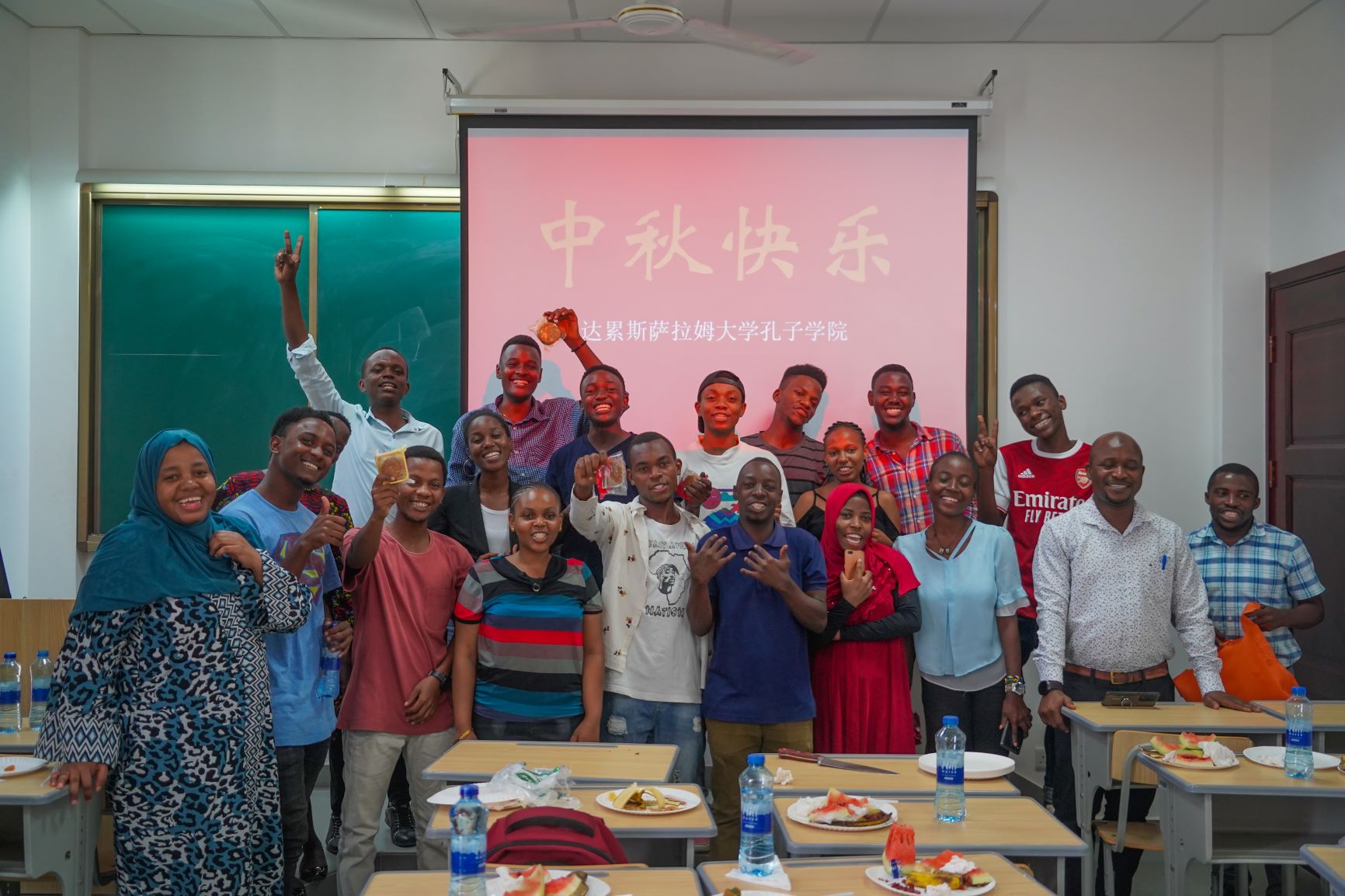News
On the morning of September 26, local time, the Confucius Institute at the University of Dar es Salaam held a Mid-Autumn Festival celebration with the theme of “know customs, sing poems, and taste moon cakes”. Although it is a holiday now, nearly 50 Confucius College students still returned to the Institute to participate in the activities.
Listen to stories and know customs
At the beginning of the activity, local Chinese teacher Wang Chao introduced the time and origin of the Mid Autumn Festival, and sent the festival blessing to the students. The teacher also prepared a video introducing the origins, legends, customs and moon cake making of the Mid-Autumn Festival for the students, and also carefully designed related questions. The students watched the video carefully. They became interested in the stories of Chang'e flying to the moon, Houyi shooting the sun, and customs such as eating moon cakes, admiring the moon, and reciting poems. Then, the activity entered the question and answer session. While listening carefully to the teacher's questions, the students quickly answered the questions. The activity scene changed into knowledge class, and the atmosphere was warm.
Reciting poems and words of reunion
In the poem chanting session, the students became poets, chanting alone or in groups of three to celebrate the Mid Autumn Festival. Some of them ask the sky for wine and recite the classic poem "Prelude to water melody" , which has been handed down for thousands of years, so that we can feel the poet's full of pride and sadness; Some people sang and chanted, with a "Recitation Poem for Mid-Autumn Festival" to bring everyone to experience the moon night of Mid-Autumn Festival and chant the reunion together. Their affectionate performance won the applause of everyone. The students appreciate the classics while reading, understand the special meaning of "reunion" in Chinese culture, and experience the meaning of Mid-Autumn Festival.
Tasting moon cakes and sending blessings
The teachers explain to everyone the representative food of the Mid-Autumn Festival-moon cakes. The moon cake is round and eaten by the family, symbolizing reunion and harmony, and it is also a tribute to worship the moon god. The students tasted moon cakes prepared by the Confucius Institute. It is the first time for most students to eat moon cakes. They think that moon cakes are both beautiful and delicious. Many students say that they are ready to make moon cakes for their families.
Student Xiaoan (Salum Khamis) said that he had learned about the Mid-Autumn Festival before, but this was the first time he had the opportunity to celebrate the Mid-Autumn Festival. He found the origin and legend of the Mid-Autumn Festival very interesting and hoped to have more opportunities to experience Chinese festivals in the future. Student Sharifu Bakari said that through this event, he has learned more about how Chinese celebrate the Mid-Autumn Festival, and he believes that Chinese, like Africans, attach great importance to family and respect traditional culture. Although China and Africa are separated by thousands of miles, there are many similarities in their values.
At the end of the activity, the students also took this opportunity to send their best wishes for the Mid Autumn Festival, and wish you all a happy Mid-Autumn Festival and reunion! The Mid-Autumn Festival celebrations ended with the blessings of the students.
Every traditional Chinese festival, the Confucius Institute at the University of Dar es salaam holds activities to celebrate with students. On the one hand, it deepens the students' impression of the content learned in the classroom, and on the other hand, it allows students to have a deeper understanding of Chinese festivals and traditional culture. Through this Mid-Autumn Festival celebration activity, students learned about customs, chanting poems, and tasting moon cakes in a strong festive atmosphere, learned the traditional customs of Mid-Autumn Festival, learned about the Chinese people’s complex of sending love on the bright moon, and deeply felt the charm of traditional Chinese festivals.
Other News
Tue, 20.Jun.2023 : CALL FOR REGISTRATION OF HSK SHORT COURSEFri, 15.Jul.2022 : CALL FOR REGISTRATION OF HSK SHORT COURSE
Sun, 27.Jun.2021 : College students from CI UDSM Won the Third Prize in Chinese Bridge
Sun, 27.Jun.2021 : The 2nd Dar es Salaam University Innovation and Entrepreneurship Competition Final and Award Ceremony was successfully concluded
Sun, 25.Apr.2021 : CI UDSM publishes localized textbooks in Tanzania


